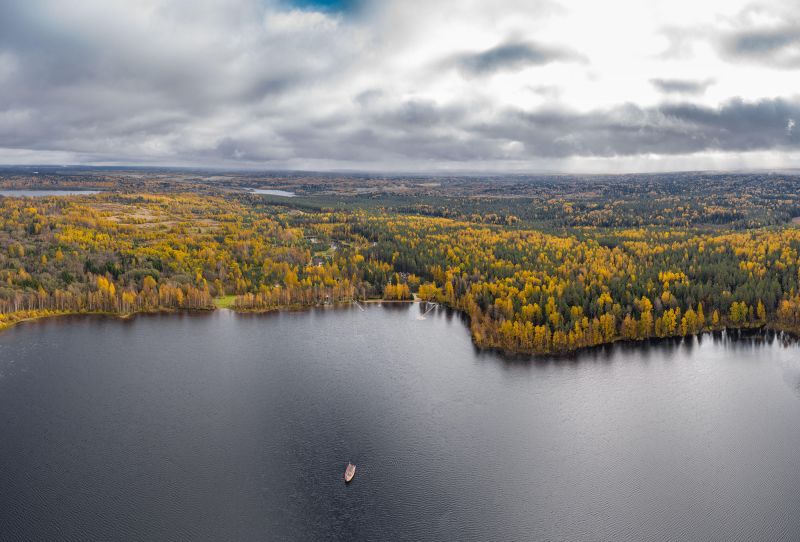
Putin’s summer residence gets new air defenses as Ukraine steps up drone attacks
As Ukraine grows bolder in striking targets deep inside Russia, Moscow has quietly upped the security measures around President Vladmir Putin’s country residence north of Moscow.
Satellite images have revealed that several Pantsir-S1 air defense systems have been installed in the vicinity of the presidential residence on Lake Valdai in Novgorod region.
The Valdai residence could be a high-profile target, as Putin is known to be spending time there during the summer. The palatial property sits inside a large government vacation resort in the Valdai national park, on a peninsula wedged between two lakes. Access to the whole complex is severely restricted – the 40 hectares of grounds are surrounded by water on three sides and fenced off from the rest of the park.
First reported by Radio Liberty, satellite images show the Russian-made Pantsir-S1s have been moved into the area at some point between last September and this May, just as Ukraine became better at developing and using drones capable of striking deeper inside Russia.
Satellite images provided by Maxar Technologies show air defenses strategically positioned in the area, including on a tower located deep in a forest just a few kilometers away from the compound.
The Pantsir-S1 systems are designed to combat short-range cruise missiles and drones, suggesting the move to station them near the residence may be a response to Ukraine’s increasingly audacious drone attacks.
Kyiv has recently been given permission to use Western weapons to strike across the border into Russia, but this is limited to military targets that are near the border with the Ukrainian Kharkiv region and are supporting Russia’s offensive in Ukraine.
For any strikes deeper into Russia than that, Ukraine must rely on its own weapons. Drones are a big part of the strategy.
Ukraine’s drone program has grown significantly since Russia launched its full-scale invasion in February 2022. What began with efforts to modify cheap, off-the-shelf drones that could be used for surveillance has turned into the development of long-range attack drones that are capable of striking hundreds of miles beyond Ukraine’s borders.
So far this year, Kyiv has claimed that Ukrainian drones sank or severely damaged several Russian warships in the Black Sea and caused damage to the Kerch Strait bridge between Russia and Ukraine’s Crimea, annexed by Russia in 2014.
The Ukrainian military has also managed to destroy fuel depots, military targets and energy infrastructure much further afield. In April, it said its drones hit the Niznekamsk oil refinery – one of the five largest in Russia – in Tatarstan region, more than 1,100 km (700 miles) from the border. And last month, the Ukrainian military said it had destroyed one of Russia’s newest and most advanced fighter jets, the Sukhoi Su-57 fighter, with a drone strike almost 600 kilometers (372 miles) behind the front lines.
“Ukrainian drone strikes deep within Russia continue to pressure Russia’s air defense umbrella and force the Russian military command to prioritize allocating limited air defense assets to cover what it deems to be high-value targets,” the Institute for the Study of War, a Washington-based group, said in a battlefield update on Wednesday, pointing to the decision by Russia to move the Pantsir-S1 systems there.
The presidential residence is well protected from would-be invaders. Access to the complex is severely restricted – the 40 hectares of grounds are surrounded by water on three sides and fenced off from the rest of the park.
A special permit is required to access the wider park and the resort is completely off-limits – according to its official website, it has been closed indefinitely since last November.
The retreat’s history as a vacation destination for Russia’s top officials dates back to the time of Soviet leader Joseph Stalin, who had a dacha – or summer house – built in the area, according to the Russian Presidential Property Management Department, the body that manages the holiday complex. Nikita Khrushchev and Boris Yeltsin both enjoyed time at the residence, according to Russian state news agency Ria Novosti.
